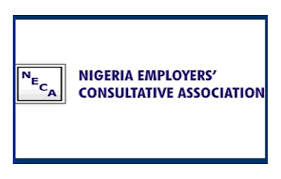The Nigeria Employers Consultative Association (NECA) has raised concerns that the N3trillion approved by the Federal Executive Council (FEC) to cover subsidy on Premium Motor Spirit (PMS) commonly known as petrol for 18 months, was neither desirable nor sustainable for the overall resuscitation of the economy.
It will be recalled that the Nigeria National Petroleum Corporation (NNPC) forwarded a proposal of N3 trillion to the FEC, last Wednesday to cover cost of subsidy for 18 months, July 2022 to June 2023, stating that its removal would be suspended.
NECA, which is the umbrella body for all employers in the country, however, contended that for government to effect total removal of subsidy on petrol, it must take urgent steps to address the predicted socio-economic issues which would arise as a result.
Speaking on the N3 trillion subsidy on petrol for the next 18 months by the Federal Government, NECA said: “The subject of fuel subsidy has become a matter of perpetual recurrence.
“In the recent past, we had opined that the removal of fuel subsidy was due and in the best interest of the country.
‘’However, we were deeply concerned about the timing, in view of the nation’s continued dwindling economy.
“Consequently, we encourage the government to engage relevant stakeholders, given the huge impact the removal would have on household income and spending before its implementation.
“The N3 trillion approved by the Federal Government is a follow-up to the suspension of the planned removal of subsidy in the country.
“It should be noted that following the public outcry on government’s intention to stop the subsidy of PMS, the Federal Executive Council approved the sum of N3 trillion to cover subsidy.
‘’In taking this decision, the government noted that the abrupt removal of subsidy would lead to increased hardship in the population and heightened inflation, especially since the necessary structures that would cushion the effects of subsidy removal on the general populace were not yet in place.
“While the Federal Government has rescinded the implementation plan and rather approached the National Assembly to amend the 2022 budget and make additional provision for subsidy from July to June 2023, it is imperative to note that this is certainly not sustainable in the long term, neither is it desirable for the overall resuscitation of the Nigerian economy.
“As often canvassed by the Organised Private Sector on the growing debt debacle, we call for more collaborative efforts in the form of Public Private Partnership, PPP, in addressing the huge infrastructure deficits, in a very short term and at cheaper rate.
“It is our belief that implementing the PPP initiative in provision of the country’s critical infrastructure, decent and sustainable jobs will be provided and desirable number of people will be lifted from the poverty rank, even before the desired date of 2030.
“More so, with the unpredictable nature of global oil prices and developments in usage of alternative sources of fuel and modern technology, it is more appropriate to hasten the process of diversification of the non-oil economy in expanding the revenue sources away from oil.
‘’It is obvious that revenue from non-oil is more feasible than the oil revenue. This will result in a buoyant and robust economy which will reduce the need for external debt to the barest minimum.
“Exploration of the various natural mineral deposits in the country for processing and exportation should be optimized.
“Going forward, government has to take urgent steps to address the predicted socio-economic issues which would arise if subsidy removal is to see the light of the day.
“Government should address the following urgently to foster total removal of subsidy on petrol rather than injecting trillions of naira from an already bleeding economy.
“They include the revival of the four refineries in the country to optimal operating capacity and encouragement of more private sector involvement in refining crude oil, complete deregulation of the downstream sector, and provision of socio-economic relief options to address the anticipated drastic reduction in the citizens’ disposable income and standard of living.”



